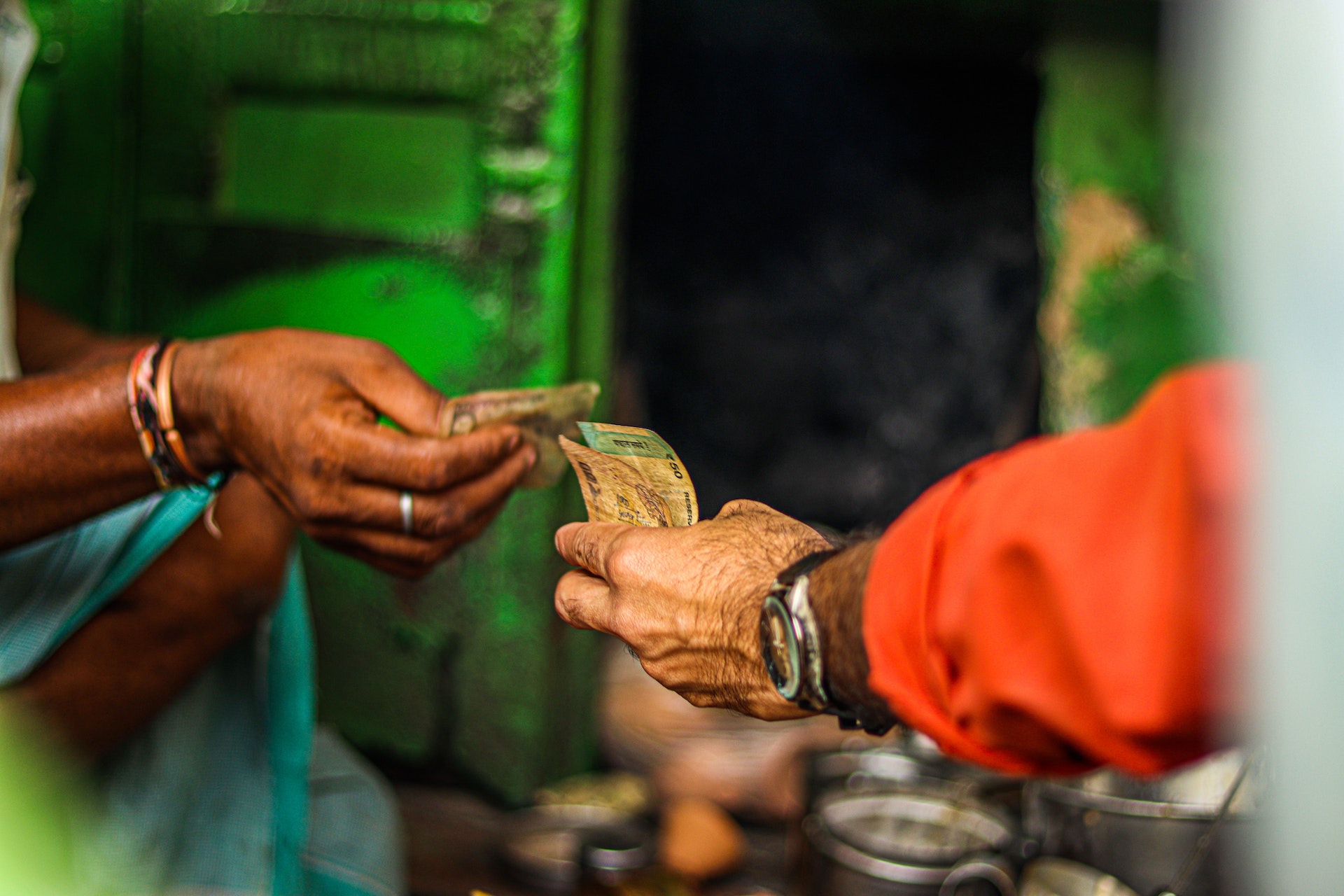Is ‘patrimonial politics’ bad for Africa? Or might distributing cash actually be an integral part of good governance? LSE’s Portia Roelofs draws on her recent publications on Nigerian politics to tackle one of the most important debates in democracy and development: should politicians give money to the poor?
All politics involves distribution. Indeed, many would claim that politics is at its heart about controlling distribution: who gets what, when and how. Political debate over ‘empowerment schemes’ in Nigeria, however, shows how our ideas of what counts as legitimate forms of distribution are overly simplistic.
For the last 30 or so years of debate about politics in Africa, there’s been a general consensus that politicians should be discouraged from engaging in patrimonial distribution, defined as the small scale ad hoc personalistic distribution of immediate private good like food or money. Rather they are encouraged to move towards programmatic distribution, understood as the programmatic delivery of long-term public goods like roads, or services.
This sounds pretty uncontroversial. Indeed many would say that programmatic politics is synonymous with good governance. Within this framework some have argued that patrimonial politics can nonetheless be ‘hacked’ and put to the service of more programmatic objectives. The possibility of ‘developmental patrimonialism’ in places like Rwanda and canny politicking by reformists, like Babatunde Fashola in Lagos, suggests that patrimonialism can act as an instrument for centralising rents and channelling patronage into long-term investments.
Notwithstanding these debates, there remains an underlying consensus of where to draw the line between legitimate and illegitimate distributive strategies, and thus what those involved in politics in Africa should do.
However, as I argue in the upcoming issue of the Journal of Modern African Studies, this way of thinking naturalises certain assumptions about what good politics entails: it should not involve giving out money directly, it should not be aimed at meeting short-term immediate needs, and so on. While this has become almost a received wisdom in writing about African politics, it is at odds with recent trends within the development industry itself, for example with the rise of direct cash transfers. Social protection payments has come to occupy a central plank in development thinking as part of a ‘quiet revolution’.
It is worth remembering just how controversial this was when it was first suggested. In 2004, Joseph Hanlon asked in a leading development journal ‘Is it possible to just give money to the poor?’ His claim that yes it is possible and, what’s more, advisable, was intentionally provocative. This shows how schemes that were condemned as a wasteful frittering away of public funds in the hands of the undeserving poor, in one decade, can be celebrated as transformative social protection programmes in another.
Thus, in development circles just as in politics on the ground, the line between legitimate forms of political distribution and illegitimate forms is subject to change over time. This is unsurprising when we think about the big political disagreements that shape politics, with the left being considerably more pro-redistribution than the right. Indeed, we should expect people to disagree over what the state should do: if we all agreed there’d be no need for democracy.
Two recent empowerment schemes from Nigeria, and subsequent debates about their legitimacy, demonstrate the relevance of these debates. In January 2019 the federal government’s TraderMoni scheme, whereby N12 billion of loans were distributed to over a million recipients, was condemned by opposition and civil society groups as ‘sophisticated voter-inducement’. However, the grounds on which the scheme was judged to be illegitimate varied: was it wrong because it was too close to the election, because it was not in the party’s manifesto or because it constituted the use of public funds for party-specific aims?
The Bank of Industry defended the programme arguing that the loans were simply a means to the larger end of financial inclusion. Thus the question of how to draw the line between legitimate distributive strategies that win votes and illegitimate vote-buying strategies is a live topic in Africa’s biggest democracy.
Looking at a forerunner of the TraderMoni programme in Oyo state shows the complexity of politicians’ attempts to render distribution legitimate to different audiences at once. In December 2014, 6,000 traders received interest free loans of N10k in a lively event at Lekan Salami stadium in Ibadan. The colourful event – with dancing, photo ops with giant cheques, singing – fitted seamlessly into the existing ideas of what ‘empowerment events’ looks like, and helped to reassure local voters that Governor Ajimobi was not tight-fisted as his elite image suggested.
The governor described it as ‘his own stomach infrastructure’, giving a nod to both to legacies of amala politics in the state where leaders like Lamidi Adedibu cemented support by giving out bowls of the Yoruba staple amala and gbegiri, as well as the popularity of Ayo Fayose’s direct distribution of food in nearby Ekiti. At the same time Ajimobi’s official speech and the government officials from the CBN presented an alternative interpretation: the event was not about handing out cash but, like TraderMoni, a tool for the programmatic goal of 80% financial inclusion by 2020, which had donor and Central Bank of Nigeria support. Thus, the same event was simultaneously framed in two opposing ways, each implying different claims about what distributive strategies are legitimate.
The idea of laudable programmatic appeals competing with corrupt promises of immediate benefits is therefore only one possible interpretation of how politicians navigate distributive politics. It is a lens through which many progressive politicians themselves see the world: for instance Ajimobi declared an end to amala politics. However, there are also sincerely held opposing views. Much of the political contestation in Nigeria at the moment can be understood as a struggle to define whether certain sorts of well-established patterns of political distribution are an essential component of responsible leadership, or at odds with it.
Whereas political discourse in African countries is often seen as simply concerned with valence issues, these debates show how politics on the ground in Nigeria can be used as a window into serious questions of what the state should do and what constitutes good politics.
This article first appeared on Democracy in Africa.
Dr Portia Roelofs is an LSE Fellow in International Development at the London School of Economics and Political Science.
The views expressed in this post are those of the author and in no way reflect those of the Africa at LSE blog, the Firoz Lalji Centre for Africa or the London School of Economics and Political Science.





